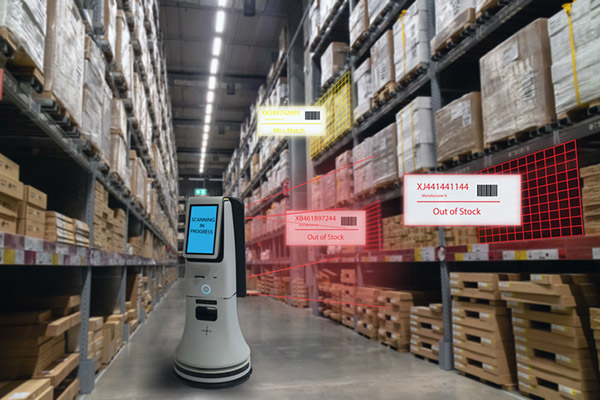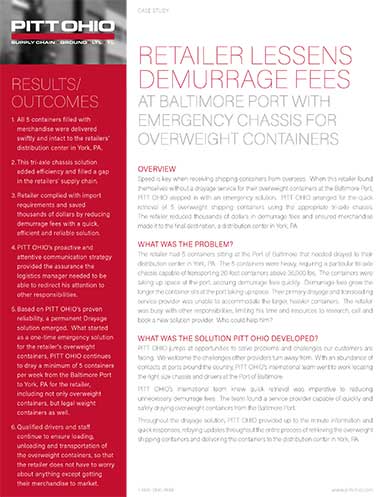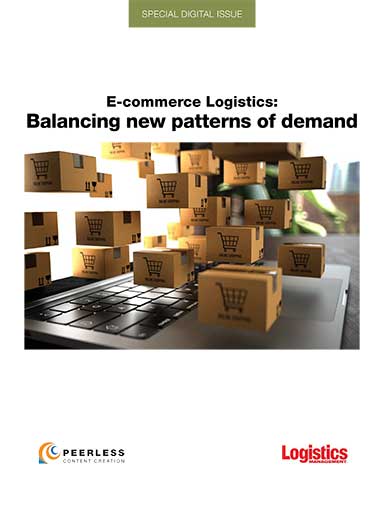Automation Alters the Path Ahead for Retail Careers
Robotics promises to revolutionize the industry, but workers should embrace change and welcome the help.
Technology continues to innovate various industries, but it comes with a mixture of enthusiasm and fear. Businesses are understandably excited about the prospect of greater efficiency, while some workers worry they'll be replaced by robots.
The retail industry is a prime example. Who hasn't walked to the front of their local grocery or big-box store recently and been confronted with the option to do self-checkout?
Retail has experienced some major forms of automation over the past several years, but that doesn't necessarily mean all workers will be shown the door. Make no mistake, the future of retail careers will be vastly different than what we see today.
What's happening with retail automation?
The retail industry, among others, has experienced many labor-related challenges over the past several years. In fact, the U.S. Bureau of Labor Statistics reports that frontline retail workers are expected to quit their jobs at double the rate of other workers.
Many large retailers, like Home Depot, Walmart, and Kroger, have chosen to invest in automation to supplement some of their human staffs. In addition to self-checkout counters, artificial intelligence is another example of automation on the retail floor helping shoppers find items as well as track customer behavior.
Behind the scenes, automation is streamlining the various logistics processes that bring products to retail shelves. For example, there are now systems to count and put away inventory as well as prepare items for shipment to retail locations.
Robots are a positive development for retail careers
While the shift to automation in the retail sector might seem alarming on the surface, the truth is that it's not all bad news for human workers. For several years, the McKinsey Global Institute has been conducting extensive research on automation.
The institute discovered that about half of retail activities can be automated using current technology. However, only about 5% of all jobs can be fully automated.
Even with those figures, retail careers won't disappear – they'll just evolve and change. Here are eight ways in which automation will result in different—and better—careers for retail workers.
1. Redefining retail careers
Automation allows retail companies to create a variety of new retail career paths. As more retailers implement these systems, there will be a greater demand for highly skilled workers in areas like robotics, data science, analytics, and more.
These roles will empower workers to pursue positions that offer greater flexibility, higher wages, and better working conditions.
2. Retraining the workforce
To fill these new roles that automation will create in the retail industry, employers will need to support programs to retrain their workforce. In other words, the existing workers will have to learn new skills.
McKinsey & Co. recently surveyed 300 corporate executives of companies with over $100 million in annual revenue. Of those, 82% agreed that businesses will need to retrain their workforce to satisfy skills gaps in the future.
3. Lower-stress jobs
Retail is generally a high-stress job; working through a labor shortage doesn't make things any easier. Existing workers are asked to work longer hours and take on more duties to compensate for shortages. This can cause worker dissatisfaction and burnout.
Because automation results in greater efficiency, it also puts less strain on retail employees. Existing workers will be happier and more engaged, which can also result in higher retention rates.
4. More diversity of tasks
Retail work can be incredibly repetitive, whether you are asking employees to work a checkout lane, bag groceries, stock shelves, or take inventory. One of the principal aims of automation is to eliminate or reduce those repetitive and tedious tasks.
The work that is left are the sorts of tasks not suitable for automation, which tend to be more varied. Workers will get to perform a broader range of jobs during the day, which also makes the work more interesting.
5. Better relationship building
Most businesses achieve success based on quality relationships. When employees spend less time on repetitive and tedious tasks, they can devote more time to building relationships — with everyone.
Employees will have more time to devote to customer service and can also build stronger ties with business partners and internal management.
6. Informed and empowered workers
From robots with screens and wearables for assisted picking to augmented and virtual reality, technology improve communication with and among retail workers.
Automated messages can be sent to workers about company news, promotions, or even safety issues. When employees are better informed, they are more empowered in the workplace.
7. Improved product knowledge
When workers are not spending every moment being reactive due to staff shortages, they have more time to improve their product knowledge. This can be particularly useful for businesses that sell complex products such as electronics.
When employees can become product experts, they can deliver a better customer experience.
8. More satisfied customers
Today's consumers have high expectations of the brands they support. Many consumers might seem suspicious of automation in a retail setting, but they actually love the benefits it provides for customer service.
Specifically, automation can allow employees to provide a more personalized customer experience.
Look to the future of retail automation
Many retailers are still hesitant to invest in automation technologies, even though they deliver impressive rates of return. However, a growing trend in larger retail enterprises foreshadows a future where automation plays a pivotal role.
The reassuring aspect is that the challenges in today's labor market present a unique and timely opportunity for retailers. By investing in robots and automation, retailers can not only optimize their operational efficiency, but they can also make better use of the talents and skills of their current workforce.
This shift toward automation is more than just a response to challenges; it's an opportunity for retailers to adapt, thrive, and remain competitive in an evolving retail landscape.

About the author
A pioneer in the mobile-powered industrial carts industry, founder and CEO John O'Kelly began Newcastle Systems in 2005. He has since grown the company to 40 employees and was recognized as a 2022 Supply Chain Brain Top 100 Supply Chain Partner.
To meet growing demand, Newcastle Systems moved from Haverhill, Mass., to a larger location in Amesbury, Mass. Its mobile carts are used in manufacturing, retail, and shipping and receiving applications by companies including Walmart, UPS, DHL, Wayfair, Tesla, and Amazon.
Newcastle Systems recently released an industry report, “Bridging the Gap Between Humans and Automation.” This article is posted with permission.













